Le Département des sciences sociales, politiques et de la communication regroupe des enseignants et des chercheurs venus d’horizons disciplinaires différents : sciences politiques, information et communication, philosophie, sociologie et droit.
Présentation
Le Département compte 7 académiques, 9 doctorants, 9 chercheurs et post-doctorants et 1 membre du personnel administratif. Il a la responsabilité des enseignements relevant de ces champs disciplinaires dispensés à la Faculté et dirige les programmes de bachelier en sciences politiques et de bachelier en information et communication. Ses membres sont engagés dans des recherches au sein des Instituts de Recherche Transitions et NADI et autour de trois grandes thématiques : digital media & communication, transitions et âge de la vie et transformations démocratiques.
Spotlight
News
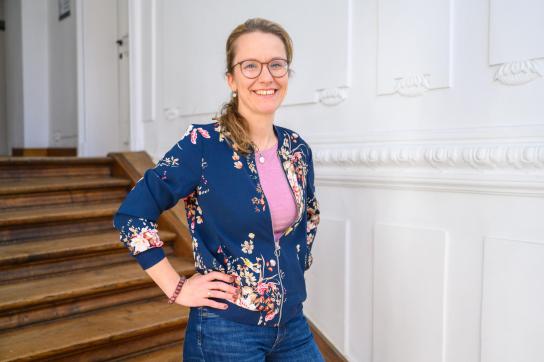
Taking into account the family situation of members of parliament: a major challenge for the future
Taking into account the family situation of members of parliament: a major challenge for the future
Reconciling family life and a political career in the European Parliament poses major challenges, particularly for MEPs with young children. This is demonstrated by Elena Frech, researcher at the University of Namur, in her recent research on work-life balance in European institutions.
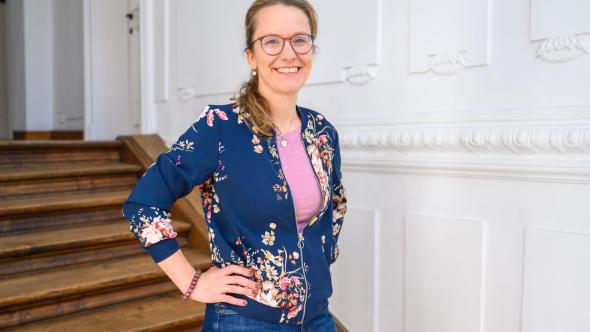
According to Elena Frech, member of the Transitions and of the Department of Social Sciences, and Communication (Faculty EMCP), the lack of parenting Members of the European Parliament, and in particular mothers and young parents, has a direct impact on political decisions. "Parents see the world differently and, if there are fewer parents in the Parliament, this will inevitably affect policy and the decisions taken," she explains in an interview with EUobserver.
The researcher highlights the difficulties faced by MEPs in reconciling their mandate and family life. Between long working hours, travel between Strasbourg, Brussels and their constituencies, as well as the absence of formal parental leave, many elected representatives are forced to curtail or interrupt their political careers. "The absence of a parental leave policy, combined with a demanding schedule, has led some MPs not to stand for re-election in 2024," adds Elena Frech.
The European Parliament currently provides neither maternity nor paternity leave for its members. According to Elena Frech, this lack of official recognition of parental leave increases the pressure on parent MEPs. "Their party loses a vote, because parents on leave cannot be replaced for the vote. So the pressure to return is very strong" (EUobserver).
An essential debate for the future of European institutions
Elena Frech's research highlights a structural problem within the European institutions, which limits the diversity and representation of parents, particularly women, in the European Parliament. Her work raises a fundamental question: how can internal regulations be adapted to take better account of the reality of MEPs' families? A key issue for the future of European democracy.
Credits : the interview passages in this article are taken from an interview with Elena Frech conducted by EUobserver.
Source for EUobserver article : Bonneyrat, S. (2025).Is the EU Parliament still letting down female MEPs with children? EUobserver.
Find the scientific studies on which the EUobserver article is based:
Frech, Elena and Sophie Kopsch.2024. "Beyond Rhetoric: The European Parliament as a Workplace for Parents and Current Reform Debates", Politics and Governance 12.
Frech, Elena.2024. Mothers, parliamentarians, leaders: career factors influencing women's representation in the European Parliament - a case study of German parliamentarians.European Politics and Society, 1–19.
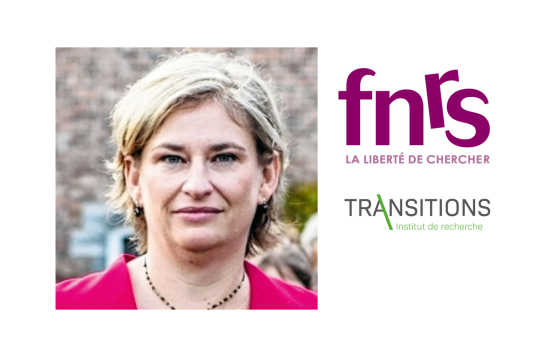
FNRS 2024 calls: Thinking about work after legal retirement age
FNRS 2024 calls: Thinking about work after legal retirement age
Nathalie Burnay, professor in the EMCP Faculty and member of the TRANSITIONS Institute, has just been awarded PDR funding from the F.R.S-FNRS for her BRIDGE-EXT project. In collaboration with the Haute Ecole de Travail Social de Lausanne, she will focus on the situations and reasons that contribute to the continuation of professional activity after the legal retirement age.
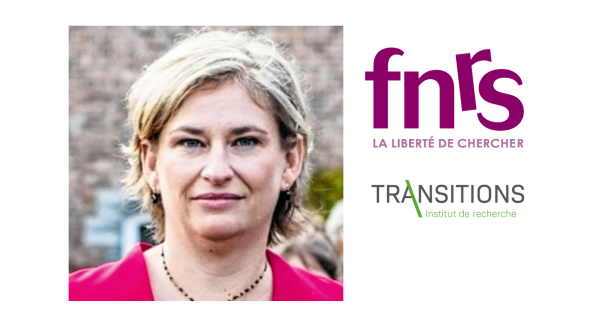
At a time when various governments are trying to get us to work until we're 67, some workers are continuing to work past the legal retirement age.
The BRIDGE-EXT project, funded by the PDR du F.R.S-FNRS, aims to gain a better understanding of these professional situations by questioning both the individual and relational reasons that contribute to continuing to work, but also the structural dynamics involved. It is for the latter reason that the researchers have developed a partnership with colleagues in French-speaking Switzerland, under the supervision of Prof. Valérie Hugentobler of the Haute Ecole de Travail Social de Lausanne (HETSL/HES-SO).
The interest of this collaboration lies in understanding post-retirement work according to differentiated political contexts where retirement systems are both fairly comparable, but also very different. How, then, are we to apprehend this work, which poses both the question of life choices and the constraints, particularly financial, that weigh on individuals today?
The research team will be made up of sociologists and anthropologists specializing in issues of aging at work. Amélie Pierre will be hired at UNamur to work on these issues, which are at the heart of current affairs.
Mini CV
Nathalie Burnay is a sociologist and full professor at the University of Namur (EMCP Faculty). For many years, she has been working on the analysis of end-of-career and ageing at work from a disciplinary and interdisciplinary perspective. She approaches these issues from an analysis of social policies, changing working conditions and normative transformations in the contemporary world.
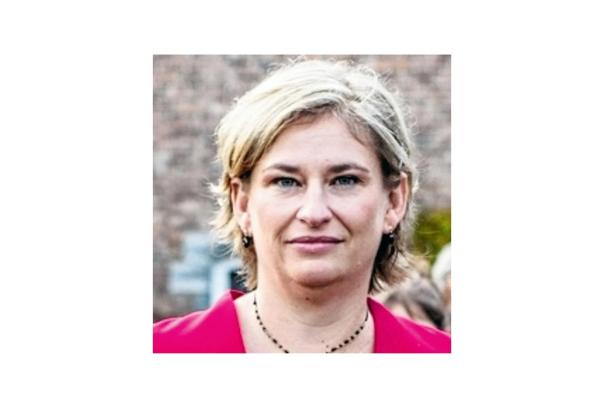
In recent years, her scientific horizons have opened up to questions related to transmissions, life courses and temporalities, as well as to the sociology of emotions.
She is also a member of the Institut TRANSITIONS - Pôle Transitions et âges de la vie. This cluster studies the way in which these life courses are recomposed according to new social constraints and normative imperatives. It focuses on the fragility of populations at all stages of life, and also on the repercussions of political measures and mechanisms on the construction of life courses. It brings together researchers from different disciplinary backgrounds who analyze both the normative transformations affecting life courses and life-age transitions.
FNRS, la liberté de chercher
Chaque année, le F.R.S.-FNRS lance des appels pour financer la recherche fondamentale. Il a mis en place une gamme d'outils permettant d’offrir à des chercheurs, porteurs d’un projet d’excellence, du personnel scientifique et technique, de l’équipement et des moyens de fonctionnement.
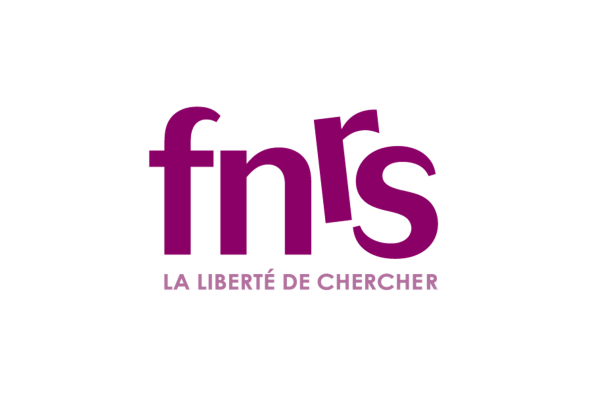
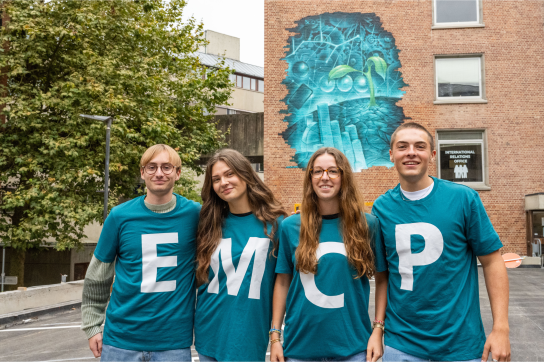
EMCP Faculty: Working together to transform
EMCP Faculty: Working together to transform
In September 1961, a few professors and fifteen students inaugurated the Faculty of Economic and Social Sciences at the University of Namur. Later renamed the Faculté des sciences économiques, sociales et de gestion, or FSESG, in over 60 years of existence, it has trained thousands of students who have become experts and decision-makers in key fields: economics, management, communication and political science. In September 2024, it changed its name to EMCP or Faculté Économie Management Communication sciencesPo. A change of name, symbol of a visionary mutation.
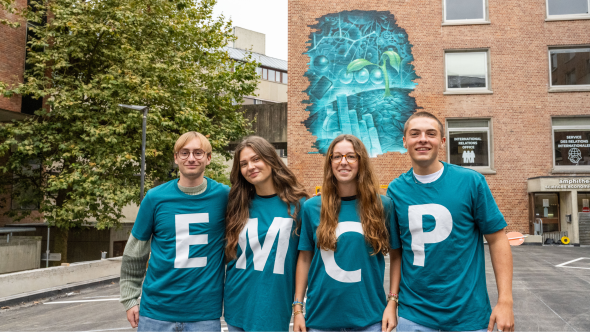
This article is taken from the "The day when" section of Omalius magazine for December 2024.
Four major teaching and research disciplines have marked the Faculty's development and become its pillars over the years: economics and political and social sciences first, then management and communication. "In its early days, the Faculty of Economic, Social and Management Sciences, created by Father Camille-Jean Joset, was united around social sciences and economics," recalls Pietro Zidda, Dean of the EMCP Faculty. "Then, the various fields developed. Management took off, enrolments in political science and communications soared. We were careful to maintain a spirit of collaboration between each of our programs". Far from the usual silos, the Faculty today makes it a point of honor for its chosen disciplines to collaborate, question and nurture each other in order to develop the skills of students and researchers so that together they can contribute to the challenges of a society in transition.
Three key missions
The EMCP Faculty is committed to three major missions. The first is to train responsible experts and decision-makers, through rigorous, hands-on teaching that stimulates critical thinking and openness to the world. It also aims to conduct ambitious, interdisciplinary research with a strong scientific impact, feeding into teaching and innovation. Finally, the EMCP Faculty wishes to act as a responsible player in societal development, sharing knowledge and contributing to informed decisions at regional, national and international levels.
It is therefore quite natural that the FSESG has become the EMCP Faculty, a name now incorporating communication and political sciences and reflecting the importance they have acquired in recent years. Four disciplines united to prepare students and researchers in a transdisciplinary way for the challenges of tomorrow.
Collaboration, transdisciplinarity and unity
The spirit of collaboration is firmly rooted at the heart of the Faculty, which strives to develop transdisciplinary approaches to meet the complex challenges of a society in transition. "To meet these challenges, a solution from a single discipline is no longer enough. We need to think more broadly, with an approach that transcends disciplines," explains Anne-Sophie Collard, Vice-Dean of the EMCP Faculty. A sentiment shared by Zora Gilet, a management engineering student: "This new name above all brings coherence to the Faculty's image and visibility for all the courses on offer. It also represents the intra-faculty diversity that we wish to promote at all levels."
This vision is also accompanied by an internal reorganization, with the creation of four thematic schools or schools: UNamur School of Economics (NSE), UNamur School of Management (UNSM), UNamur School of Social Sciences, Politics and Communication and UNamur School of Evening Studies in Economics and Management. These schools aim to strengthen synergy between disciplines, while promoting a pedagogy that integrates cross-disciplinary skills and innovative working methods. Soft skills, for example, are now systematically integrated into projects, to prepare students to respond to societal challenges in a collaborative and creative way. "I think this change helps to concretize and recognize all the large-scale projects that have been set up in recent years," explains Zora. It's an expression of a desire to develop and innovate, which is more than positive today. I consider myself lucky to be able to witness this change and proud to be part of this community."
"EMCP aims to be the catalyst lever for a future where walls are broken down and barriers between disciplines abolished as much as possible, to provide strong solutions to societal problems," concludes Pietro Zidda. This new name therefore goes beyond mere naming: it symbolizes a renewed commitment to transforming the way graduates are trained, giving them the tools they need to provide strong, coherent solutions to major contemporary challenges.
Innovative and conclusive teaching experiments
Within the Faculty, various projects and teaching experiments illustrate this EMCP vision. Examples?
Learning by doing: an approach that offers immersion in concrete projects from the first year, combining knowledge and cross-disciplinary skills to respond to real-life challenges.
Regards croisés: this project invites students and teachers to explore a topical issue from a variety of disciplinary angles, enriched by exchanges with experts in the field at a major final conference.
Dialogue between a dean and ChatGPT
To mark the name change, a fresco was erected on one of the Faculty's facades. The result? A work in shades of blue and green, where the four letters of the faculty are concealed. A young shoot evokes hope and sustainability, patterns of connections symbolize the interactions and complementarities between the various disciplines, a pendulum embodies the balance sought between them...
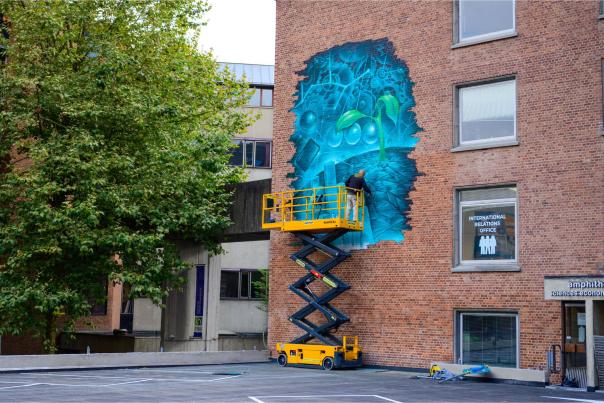
A little wink, the Dean of Faculty wondered how this fresco would be perceived by an outside audience: "This work is quite original compared to what we usually do. So I asked the artificial intelligence to give me its interpretation. And then, surprise, the answer was bluffing! ChatGPT perfectly identified the meaning and intentions of the project, as if it had read our initial brief", laughs the dean.
The EMCP Circle: students involved in change
Students have also been involved in this transformation, notably through their circles. Thus, the Cercle €co became the Cercle EMCP. "We were contacted by the Dean, who suggested that our Circle should bear the same name as the Faculty, and this seemed to us to be a perfectly natural move. We had many discussions with the dean and the vice-presidents of the Cercle. We put a lot of effort into the name change, but it was an extremely rewarding experience," explains Matthieu Dupuis, President of the Cercle EMCP. "The change may have come as a surprise to some students, but this new name enriches the Faculty's image by enhancing the value of all its courses of study. It embodies strong values and, in my opinion, represents our Faculty better than the old one."
This article is taken from the "The day when" section of Omalius magazine #35 (December 2024).
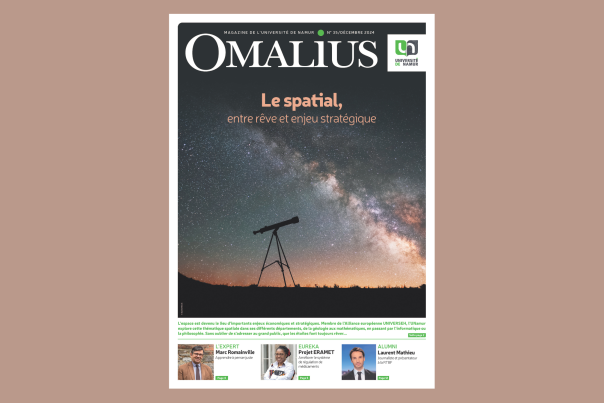
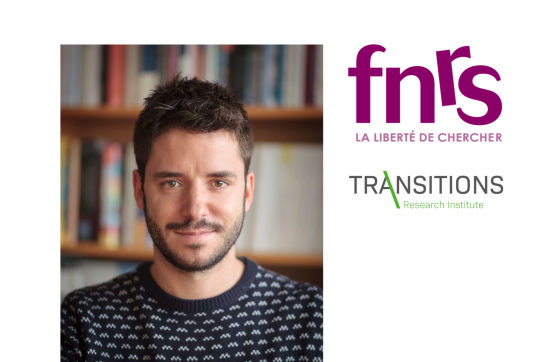
Prestigious FNRS MIS funding for Arthur Borriello
Prestigious FNRS MIS funding for Arthur Borriello
Arthur Borriello, professor in the EMCP Faculty and member of the TRANSITIONS Institute, has just been awarded a Mandat d'Impulsion Scientifique (MIS), prestigious funding from the F.R.S-FNRS. Through a comparison of 4 countries, this research project aims to understand why and how social democratic parties have adapted to the socio-political changes of the last ten years. Explanations.
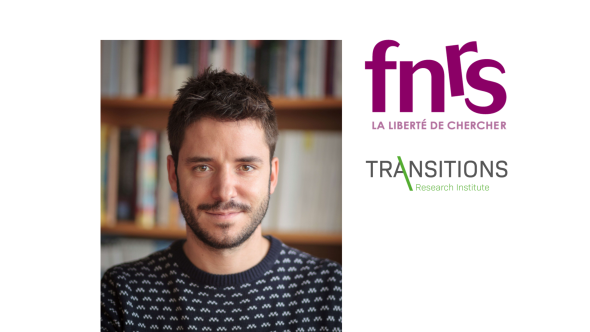
Over the past decade, the European political landscape has undergone major upheavals, with the collapse of certain parties, the emergence of new players and a fragmentation of the political offering. The consequences? An increase in abstention, greater electoral volatility and more unpredictable results. Against this backdrop, the social-democratic parties, emblems of the mass parties of the second half of the twentieth century now in difficulty, have found themselves facing competition from new players (new center parties, far-right formations, and left-wing populist parties).
This project aims to answer the following question: How have "old school " social-democratic parties adapted in the face of new competition? Did they seek to respond to the ideological and organizational innovations of the new parties?
If we look back 10 years, we see that social democratic parties suffered marked electoral setbacks in the wake of the 2008 crisis. Yet, despite the initial success of emerging movements, and against some predictions, the traditional center-left parties in the countries studied did not collapse. On the contrary, in Spain and Italy, these parties have recovered. In France, the PS remains resilient and a key player in the political game. In Belgium, despite a gradual erosion, the Socialist family remains at a high electoral level in both Flanders and Wallonia.
Through this project, the idea is to provide a key to understanding this social-democratic resilience. The aim is to study the reasons for the strategic adaptations of these players, taking into account various factors that vary between the countries studied: identity and weight of the new competing parties, specific history of the social-democratic party, electoral system (from more proportional to more majoritarian), etc. Moreover, by studying social democracy, this project aims to provide keys to understanding the transformations of other traditional political families (Christian Democrat, Liberal, Conservative, etc.). One could imagine the same project in mirror form with, as its theme, the adaptations of center-right parties to the rise of the far right, for example.
The project is based on qualitative methods - analysis of discourse, documents, archives and interviews with political players - to understand how social-democratic players interpreted and reacted to the context, and trace the processes that led them to adapt their ideology or structure, sometimes at the cost of bitter internal struggles.
Arthur Borriello - Mini CV
Arthur Borriello defended his doctoral thesis in political science at the Université libre de Bruxelles in 2016. During his years of postdoctoral research, he focused on the socio-political transformations following the economic crisis in Southern Europe, with a particular interest in left-wing populism, its strategy, organization and discourse.
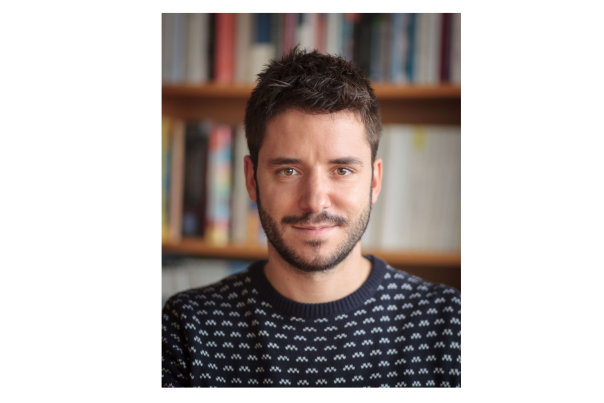
Since February 2023, he has been a lecturer in the Department of Social, Political and Communication Sciences at the EMCP Faculty of the University of Namur. He recently published with Verso, in collaboration with Anton Jäger: The Populist Moment. The Left After the Great Recession.
A Scientific Impulse Mandate (MIS) from the FNRS
In December 2024, Arthur Borriello was awarded an MIS from the FNRS. This prestigious 3-year funding aims to support young tenured academics wishing to develop an original and innovative research program by acquiring their scientific autonomy within their Department.
Within the Democratic Transformations Pole of the TRANSITIONS Institute, this mandate will enable the constitution of a research team led by the researcher.

Taking into account the family situation of members of parliament: a major challenge for the future
Taking into account the family situation of members of parliament: a major challenge for the future
Reconciling family life and a political career in the European Parliament poses major challenges, particularly for MEPs with young children. This is demonstrated by Elena Frech, researcher at the University of Namur, in her recent research on work-life balance in European institutions.

According to Elena Frech, member of the Transitions and of the Department of Social Sciences, and Communication (Faculty EMCP), the lack of parenting Members of the European Parliament, and in particular mothers and young parents, has a direct impact on political decisions. "Parents see the world differently and, if there are fewer parents in the Parliament, this will inevitably affect policy and the decisions taken," she explains in an interview with EUobserver.
The researcher highlights the difficulties faced by MEPs in reconciling their mandate and family life. Between long working hours, travel between Strasbourg, Brussels and their constituencies, as well as the absence of formal parental leave, many elected representatives are forced to curtail or interrupt their political careers. "The absence of a parental leave policy, combined with a demanding schedule, has led some MPs not to stand for re-election in 2024," adds Elena Frech.
The European Parliament currently provides neither maternity nor paternity leave for its members. According to Elena Frech, this lack of official recognition of parental leave increases the pressure on parent MEPs. "Their party loses a vote, because parents on leave cannot be replaced for the vote. So the pressure to return is very strong" (EUobserver).
An essential debate for the future of European institutions
Elena Frech's research highlights a structural problem within the European institutions, which limits the diversity and representation of parents, particularly women, in the European Parliament. Her work raises a fundamental question: how can internal regulations be adapted to take better account of the reality of MEPs' families? A key issue for the future of European democracy.
Credits : the interview passages in this article are taken from an interview with Elena Frech conducted by EUobserver.
Source for EUobserver article : Bonneyrat, S. (2025).Is the EU Parliament still letting down female MEPs with children? EUobserver.
Find the scientific studies on which the EUobserver article is based:
Frech, Elena and Sophie Kopsch.2024. "Beyond Rhetoric: The European Parliament as a Workplace for Parents and Current Reform Debates", Politics and Governance 12.
Frech, Elena.2024. Mothers, parliamentarians, leaders: career factors influencing women's representation in the European Parliament - a case study of German parliamentarians.European Politics and Society, 1–19.

FNRS 2024 calls: Thinking about work after legal retirement age
FNRS 2024 calls: Thinking about work after legal retirement age
Nathalie Burnay, professor in the EMCP Faculty and member of the TRANSITIONS Institute, has just been awarded PDR funding from the F.R.S-FNRS for her BRIDGE-EXT project. In collaboration with the Haute Ecole de Travail Social de Lausanne, she will focus on the situations and reasons that contribute to the continuation of professional activity after the legal retirement age.

At a time when various governments are trying to get us to work until we're 67, some workers are continuing to work past the legal retirement age.
The BRIDGE-EXT project, funded by the PDR du F.R.S-FNRS, aims to gain a better understanding of these professional situations by questioning both the individual and relational reasons that contribute to continuing to work, but also the structural dynamics involved. It is for the latter reason that the researchers have developed a partnership with colleagues in French-speaking Switzerland, under the supervision of Prof. Valérie Hugentobler of the Haute Ecole de Travail Social de Lausanne (HETSL/HES-SO).
The interest of this collaboration lies in understanding post-retirement work according to differentiated political contexts where retirement systems are both fairly comparable, but also very different. How, then, are we to apprehend this work, which poses both the question of life choices and the constraints, particularly financial, that weigh on individuals today?
The research team will be made up of sociologists and anthropologists specializing in issues of aging at work. Amélie Pierre will be hired at UNamur to work on these issues, which are at the heart of current affairs.
Mini CV
Nathalie Burnay is a sociologist and full professor at the University of Namur (EMCP Faculty). For many years, she has been working on the analysis of end-of-career and ageing at work from a disciplinary and interdisciplinary perspective. She approaches these issues from an analysis of social policies, changing working conditions and normative transformations in the contemporary world.

In recent years, her scientific horizons have opened up to questions related to transmissions, life courses and temporalities, as well as to the sociology of emotions.
She is also a member of the Institut TRANSITIONS - Pôle Transitions et âges de la vie. This cluster studies the way in which these life courses are recomposed according to new social constraints and normative imperatives. It focuses on the fragility of populations at all stages of life, and also on the repercussions of political measures and mechanisms on the construction of life courses. It brings together researchers from different disciplinary backgrounds who analyze both the normative transformations affecting life courses and life-age transitions.
FNRS, la liberté de chercher
Chaque année, le F.R.S.-FNRS lance des appels pour financer la recherche fondamentale. Il a mis en place une gamme d'outils permettant d’offrir à des chercheurs, porteurs d’un projet d’excellence, du personnel scientifique et technique, de l’équipement et des moyens de fonctionnement.


EMCP Faculty: Working together to transform
EMCP Faculty: Working together to transform
In September 1961, a few professors and fifteen students inaugurated the Faculty of Economic and Social Sciences at the University of Namur. Later renamed the Faculté des sciences économiques, sociales et de gestion, or FSESG, in over 60 years of existence, it has trained thousands of students who have become experts and decision-makers in key fields: economics, management, communication and political science. In September 2024, it changed its name to EMCP or Faculté Économie Management Communication sciencesPo. A change of name, symbol of a visionary mutation.

This article is taken from the "The day when" section of Omalius magazine for December 2024.
Four major teaching and research disciplines have marked the Faculty's development and become its pillars over the years: economics and political and social sciences first, then management and communication. "In its early days, the Faculty of Economic, Social and Management Sciences, created by Father Camille-Jean Joset, was united around social sciences and economics," recalls Pietro Zidda, Dean of the EMCP Faculty. "Then, the various fields developed. Management took off, enrolments in political science and communications soared. We were careful to maintain a spirit of collaboration between each of our programs". Far from the usual silos, the Faculty today makes it a point of honor for its chosen disciplines to collaborate, question and nurture each other in order to develop the skills of students and researchers so that together they can contribute to the challenges of a society in transition.
Three key missions
The EMCP Faculty is committed to three major missions. The first is to train responsible experts and decision-makers, through rigorous, hands-on teaching that stimulates critical thinking and openness to the world. It also aims to conduct ambitious, interdisciplinary research with a strong scientific impact, feeding into teaching and innovation. Finally, the EMCP Faculty wishes to act as a responsible player in societal development, sharing knowledge and contributing to informed decisions at regional, national and international levels.
It is therefore quite natural that the FSESG has become the EMCP Faculty, a name now incorporating communication and political sciences and reflecting the importance they have acquired in recent years. Four disciplines united to prepare students and researchers in a transdisciplinary way for the challenges of tomorrow.
Collaboration, transdisciplinarity and unity
The spirit of collaboration is firmly rooted at the heart of the Faculty, which strives to develop transdisciplinary approaches to meet the complex challenges of a society in transition. "To meet these challenges, a solution from a single discipline is no longer enough. We need to think more broadly, with an approach that transcends disciplines," explains Anne-Sophie Collard, Vice-Dean of the EMCP Faculty. A sentiment shared by Zora Gilet, a management engineering student: "This new name above all brings coherence to the Faculty's image and visibility for all the courses on offer. It also represents the intra-faculty diversity that we wish to promote at all levels."
This vision is also accompanied by an internal reorganization, with the creation of four thematic schools or schools: UNamur School of Economics (NSE), UNamur School of Management (UNSM), UNamur School of Social Sciences, Politics and Communication and UNamur School of Evening Studies in Economics and Management. These schools aim to strengthen synergy between disciplines, while promoting a pedagogy that integrates cross-disciplinary skills and innovative working methods. Soft skills, for example, are now systematically integrated into projects, to prepare students to respond to societal challenges in a collaborative and creative way. "I think this change helps to concretize and recognize all the large-scale projects that have been set up in recent years," explains Zora. It's an expression of a desire to develop and innovate, which is more than positive today. I consider myself lucky to be able to witness this change and proud to be part of this community."
"EMCP aims to be the catalyst lever for a future where walls are broken down and barriers between disciplines abolished as much as possible, to provide strong solutions to societal problems," concludes Pietro Zidda. This new name therefore goes beyond mere naming: it symbolizes a renewed commitment to transforming the way graduates are trained, giving them the tools they need to provide strong, coherent solutions to major contemporary challenges.
Innovative and conclusive teaching experiments
Within the Faculty, various projects and teaching experiments illustrate this EMCP vision. Examples?
Learning by doing: an approach that offers immersion in concrete projects from the first year, combining knowledge and cross-disciplinary skills to respond to real-life challenges.
Regards croisés: this project invites students and teachers to explore a topical issue from a variety of disciplinary angles, enriched by exchanges with experts in the field at a major final conference.
Dialogue between a dean and ChatGPT
To mark the name change, a fresco was erected on one of the Faculty's facades. The result? A work in shades of blue and green, where the four letters of the faculty are concealed. A young shoot evokes hope and sustainability, patterns of connections symbolize the interactions and complementarities between the various disciplines, a pendulum embodies the balance sought between them...

A little wink, the Dean of Faculty wondered how this fresco would be perceived by an outside audience: "This work is quite original compared to what we usually do. So I asked the artificial intelligence to give me its interpretation. And then, surprise, the answer was bluffing! ChatGPT perfectly identified the meaning and intentions of the project, as if it had read our initial brief", laughs the dean.
The EMCP Circle: students involved in change
Students have also been involved in this transformation, notably through their circles. Thus, the Cercle €co became the Cercle EMCP. "We were contacted by the Dean, who suggested that our Circle should bear the same name as the Faculty, and this seemed to us to be a perfectly natural move. We had many discussions with the dean and the vice-presidents of the Cercle. We put a lot of effort into the name change, but it was an extremely rewarding experience," explains Matthieu Dupuis, President of the Cercle EMCP. "The change may have come as a surprise to some students, but this new name enriches the Faculty's image by enhancing the value of all its courses of study. It embodies strong values and, in my opinion, represents our Faculty better than the old one."
This article is taken from the "The day when" section of Omalius magazine #35 (December 2024).


Prestigious FNRS MIS funding for Arthur Borriello
Prestigious FNRS MIS funding for Arthur Borriello
Arthur Borriello, professor in the EMCP Faculty and member of the TRANSITIONS Institute, has just been awarded a Mandat d'Impulsion Scientifique (MIS), prestigious funding from the F.R.S-FNRS. Through a comparison of 4 countries, this research project aims to understand why and how social democratic parties have adapted to the socio-political changes of the last ten years. Explanations.

Over the past decade, the European political landscape has undergone major upheavals, with the collapse of certain parties, the emergence of new players and a fragmentation of the political offering. The consequences? An increase in abstention, greater electoral volatility and more unpredictable results. Against this backdrop, the social-democratic parties, emblems of the mass parties of the second half of the twentieth century now in difficulty, have found themselves facing competition from new players (new center parties, far-right formations, and left-wing populist parties).
This project aims to answer the following question: How have "old school " social-democratic parties adapted in the face of new competition? Did they seek to respond to the ideological and organizational innovations of the new parties?
If we look back 10 years, we see that social democratic parties suffered marked electoral setbacks in the wake of the 2008 crisis. Yet, despite the initial success of emerging movements, and against some predictions, the traditional center-left parties in the countries studied did not collapse. On the contrary, in Spain and Italy, these parties have recovered. In France, the PS remains resilient and a key player in the political game. In Belgium, despite a gradual erosion, the Socialist family remains at a high electoral level in both Flanders and Wallonia.
Through this project, the idea is to provide a key to understanding this social-democratic resilience. The aim is to study the reasons for the strategic adaptations of these players, taking into account various factors that vary between the countries studied: identity and weight of the new competing parties, specific history of the social-democratic party, electoral system (from more proportional to more majoritarian), etc. Moreover, by studying social democracy, this project aims to provide keys to understanding the transformations of other traditional political families (Christian Democrat, Liberal, Conservative, etc.). One could imagine the same project in mirror form with, as its theme, the adaptations of center-right parties to the rise of the far right, for example.
The project is based on qualitative methods - analysis of discourse, documents, archives and interviews with political players - to understand how social-democratic players interpreted and reacted to the context, and trace the processes that led them to adapt their ideology or structure, sometimes at the cost of bitter internal struggles.
Arthur Borriello - Mini CV
Arthur Borriello defended his doctoral thesis in political science at the Université libre de Bruxelles in 2016. During his years of postdoctoral research, he focused on the socio-political transformations following the economic crisis in Southern Europe, with a particular interest in left-wing populism, its strategy, organization and discourse.

Since February 2023, he has been a lecturer in the Department of Social, Political and Communication Sciences at the EMCP Faculty of the University of Namur. He recently published with Verso, in collaboration with Anton Jäger: The Populist Moment. The Left After the Great Recession.
A Scientific Impulse Mandate (MIS) from the FNRS
In December 2024, Arthur Borriello was awarded an MIS from the FNRS. This prestigious 3-year funding aims to support young tenured academics wishing to develop an original and innovative research program by acquiring their scientific autonomy within their Department.
Within the Democratic Transformations Pole of the TRANSITIONS Institute, this mandate will enable the constitution of a research team led by the researcher.
Agenda
Preparatory courses
Top start for a revision period
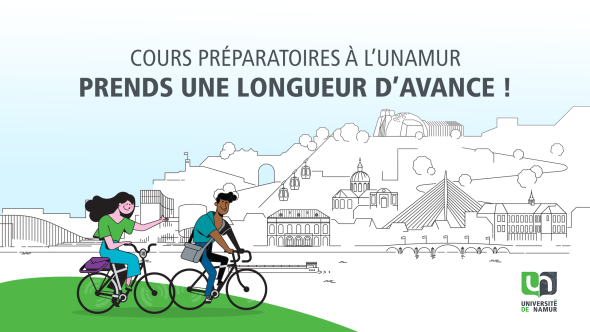
A program for every discipline
During late August and early September, UNamur offers rheto students preparatory courses tailored to their future training.
These revision sessions are specially designed to support students in their transition to university. By reinforcing their foundations in the key subjects of their future discipline, they enable them to approach their first year with confidence.
These preparatory courses are also an excellent opportunity to discover the campus, meet future classmates and familiarize themselves with the learning methods specific to higher education.
Preparation for the medical entrance exam
For students wishing to begin studying medicine, two sessions are also organized according to a specific timetable to prepare for the entrance exam.
Academic year 2025-2026
Something for everyone
09:30 | Welcome ceremony for new students
11:00 | Back-to-school celebration at Saint-Aubain Cathedral (Place Saint-Aubain - 5000 Namur), followed by student welcome by the Cercles.
Official ceremony for the start of the academic year 2025-2026
Save the date!


